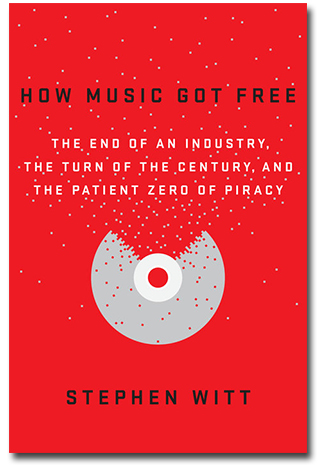How Music Got Free, book review: Piracy sparks a music-industry sea-change


Journalist Stephen Witt was a member of that class, which he dubs 'the pirate generation'. And some time later it occurred to him to wonder: where did the music they so freely downloaded come from? How did it get online?
In How Music Got Free, Witt casts the answer in three interleaved stories: the music industry and its economics; the technology industry and the fruits of research into compressing digitized sound; and the online 'Scene' for distributing copied music and its origins in 'warez'. Each story has its main protagonist: industry executive Doug Morris, who, relying on observing sales numbers rather than artistic instinct, at one time or another ran all three of today's Big Music companies; the Fraunhofer Institute's Karlheinz Brandenburg, who spent more than a decade of his life in acoustic research inventing and perfecting the MP3 file format; and Dell Glover. Who? you may ask: the man doesn't even have a Wikipedia page (as of this writing). And yet Glover, an employee at the Shelby, North Carolina Polygram pressing plant, personally leaked some 2,000 pre-release albums. Finally caught in September 2007, Glover pleaded guilty and served three months in Federal prison. The fourth protagonist is Witt himself, standing in for the downloading public, who amassed 1,500GB of downloaded music.
Glover is just one of the many surprises. Perhaps most notable to others who covered the music wars is a new look at Hilary Rosen, the CEO of the Recording Industry of America from 1998 to 2003. In Witt's account, RIAA policies such as tightening and enforcing copyright, suing consumers for unauthorised downloads, and seeking legal remedies against services like Napster, AudioGalaxy, and Grokster were all policies that Rosen opposed. Behind the scenes, Witt reveals, Rosen was advocating exactly the same thing as opponents of those policies were: make a deal with Napster; build good, legal services; don't alienate your customers by suing them. The RIAA, however, had to act as its member record companies wanted.
This multi-pronged tale is expertly told. Brandenburg's piece of the story is the most ironic: only the economic rewards from patenting software allowed him the funding to continue his research, which seemed multiple times to have led to failure. Only posting the software online for free created its eventual success, and yet the success that made him rich depended in large part on violating intellectual property laws -- something he disapproved of. At 70, Morris, dismissed as a dinosaur by all and sundry, pioneered collecting ad revenues from sites like YouTube and turned his company's vast store of old promotional music videos into a profit centre. Glover found work in a truck factory and learned enough computer science to run a sideline in fixing people's computers. Witt enjoys his Spotify subscription.
Where the book stumbles somewhat is in its discussion of the impact of downloading on the music industry. Some sections seem to accept the industry argument that illegal downloading destroyed its revenues; others seem to question that argument and cite other factors, such as the industry's failure to keep up with changing tastes in music and the cratering economy. What is certainly true is that the switch from LPs and CDs to iPods and downloading unbundled albums.
The British edition of the book has a different subtitle: 'What happens when an entire generation commits the same crime?' Witt can only offer the short-term answer. The long-term answer is yet to be seen, but usually takes some form of legalization -- look what's happening with marijuana, the generational crime of the 1970s.